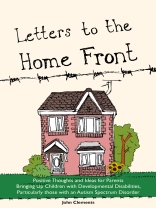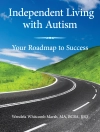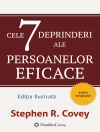Bringing up a child with developmental disabilities, especially autism, presents many challenges for parents, and the focus of attention is almost invariably on the child. This practical and compassionate book looks at a range of issues from the parents’ point of view – from whether their child really loves them, to challenging received wisdom on matters such as sensory integration and boarding school. The author’s many decades of experience of working with families provide the basis for this practical support and help in thinking about and approaching some of the most difficult and intractable issues.
One, often unvoiced, concern for parents is whether their children love or care about them. The first section of the book consists of three letters from young people to their parents, showing clearly that though they may never have been able to say so directly, they do love and appreciate their parents, and what they have done for them – a strong message for all parents in a similar situation. Clements goes on to look at how the parenting agenda changes over time, how to see beyond the diagnoses and the constant need to deal with immediate problems, to see the real people who make up the family, the impact on siblings, how to manage the system and the multiple professional agencies over long periods of time, and how to think about the offer of medication to control behaviour. An important section addresses some of the most distressing behavioural challenges: physical aggression, verbal abuse, long-term severe self-injury, property damage, and obsessions. Finally, Clements offers objective and open-minded reflections on received wisdom about two other unchallenged topics – sensory integration, and the usefulness or otherwise of boarding schools.
The book is practical, compassionate, and above all, useful. It will be of ongoing use to parents, and equally useful to professionals working with families encountering the issues covered.
Cuprins
Acknowledgements. Introduction. Preview. Letters Home: 1. Letters to My Family. Three young people on the autistic spectrum reflect on their growing up. A. Dean’s Letter. B. Hannah’s Thoughts. C. Alex’s Letter. Letters Home: 2. Dear All. Considering some general topics and decisions that come up in the parenting process. A. The Road Ahead. Looking at how the parenting agenda changes over time. B. Who are you? Reflecting on how to see real people in the midst of significant and widespread differences in abilities and the diagnostic labels that often accompany these differences. C. Brothers and Sisters. Considering the impact on siblings of growing up with a brother or sister who has significant developmental disabilities. D. Managing the System. Thoughts about dealing with the challenges that arise for parents having to deal with multiple professional agencies over long periods of time. E. Got Behaviour – Get Drugs? A guide to help parents think through the issues that arise when they are offered medication to help control their son or daughter’s behaviour. Letters Home: 3. Thinking About Some of the Behavioural Challenges Presented by Children and Young People on the Autistic Spectrum. A. Charlene. ‘Obsessions’. B. Marcus. Physical aggression. C. Tyrone. Verbal abuse, physical aggression, property damage. D. Charlie…conversations that you never want to have. A danger to himself and others. E. Rudy…the long haul. Long term severe self-injury and physical aggression. Section Comments. Letters Home: 4. Idol Speculations. An attempt to show how to challenge in a constructive way ‘received wisdom’ that is passed to parents as statements of fact. A. Sensory Integration – brain changer or licence to twiddle? B. Boarding schools – a solution for difficult problems or a British disease? A Few Last Thoughts. Appendix 1: Constructive Behavioural Support – Service Evaluation Guide. Index.
Despre autor
John Clements is a clinical psychologist of over forty years’ standing, specializing in the field of developmental disabilities. He has previously worked for the NHS and university system in the UK and jointly established the UK’s first independent psychology practice specializing in issues for people with developmental disabilities. He has also worked as a behavior consultant in California, taking a particular interest in helping people with autism and their families.












